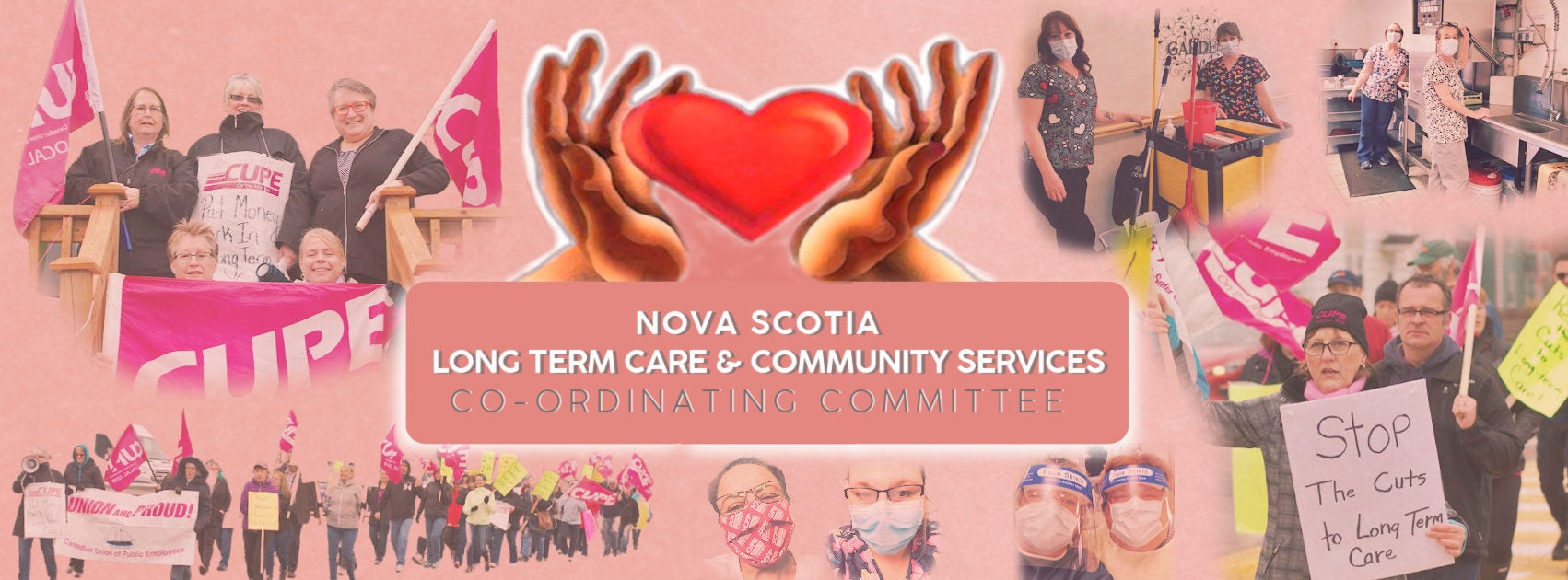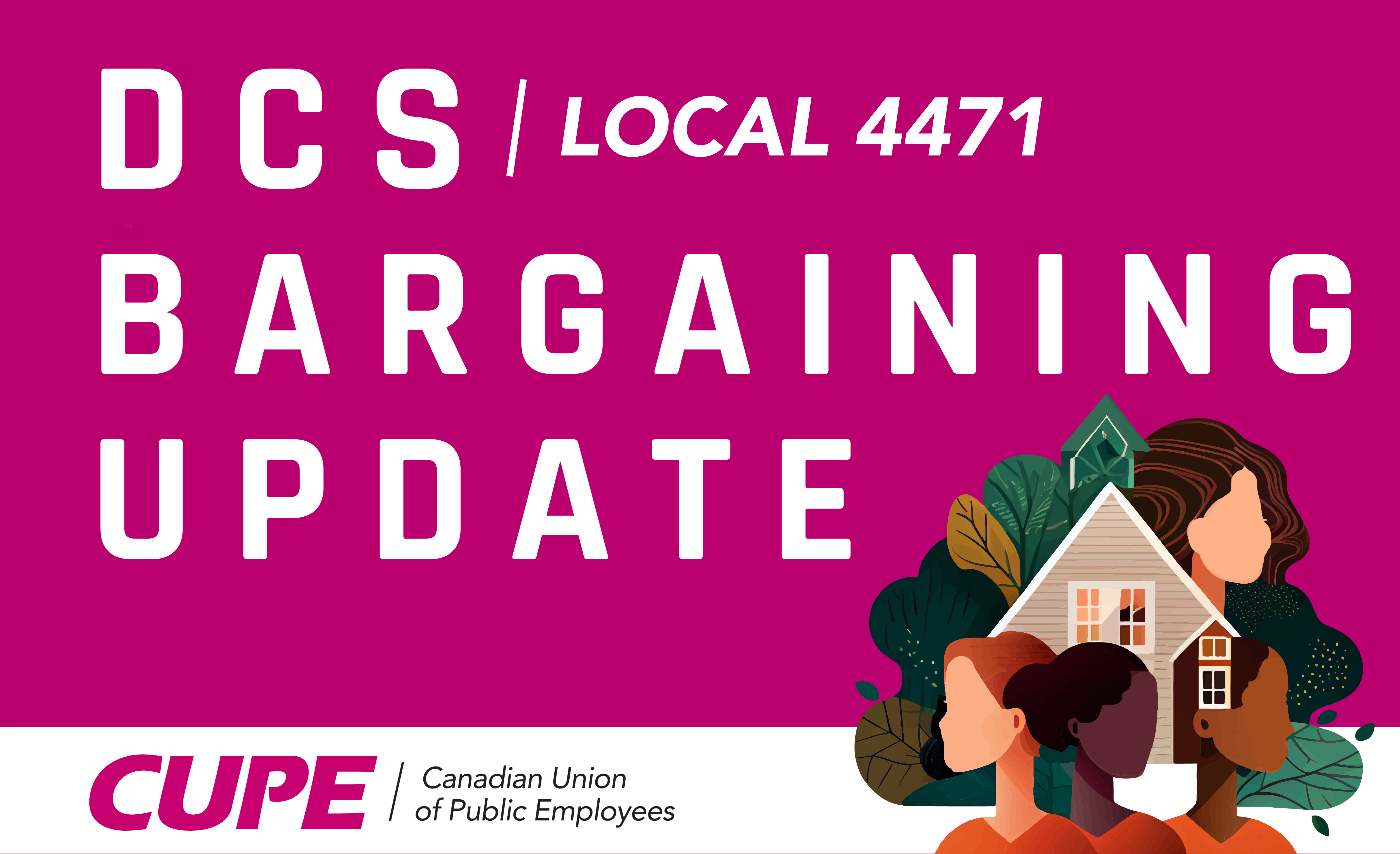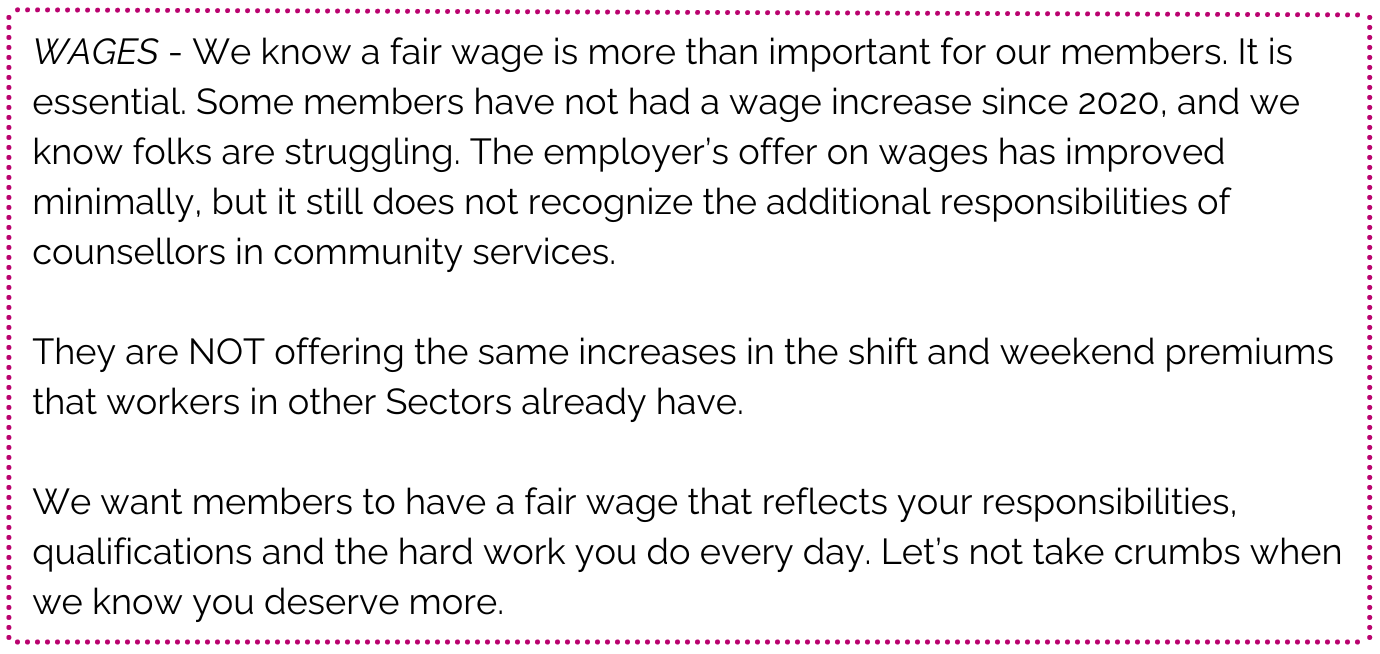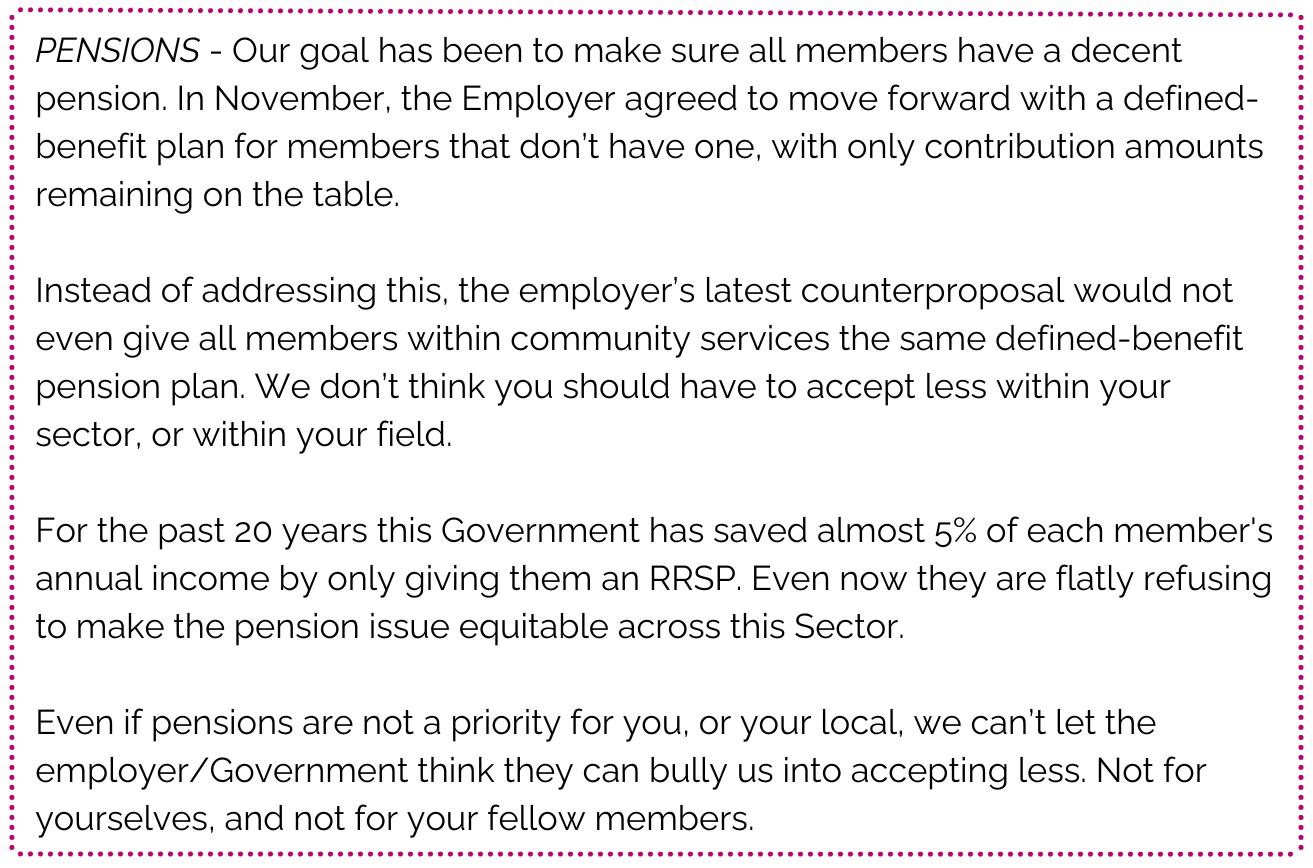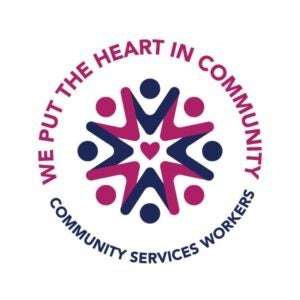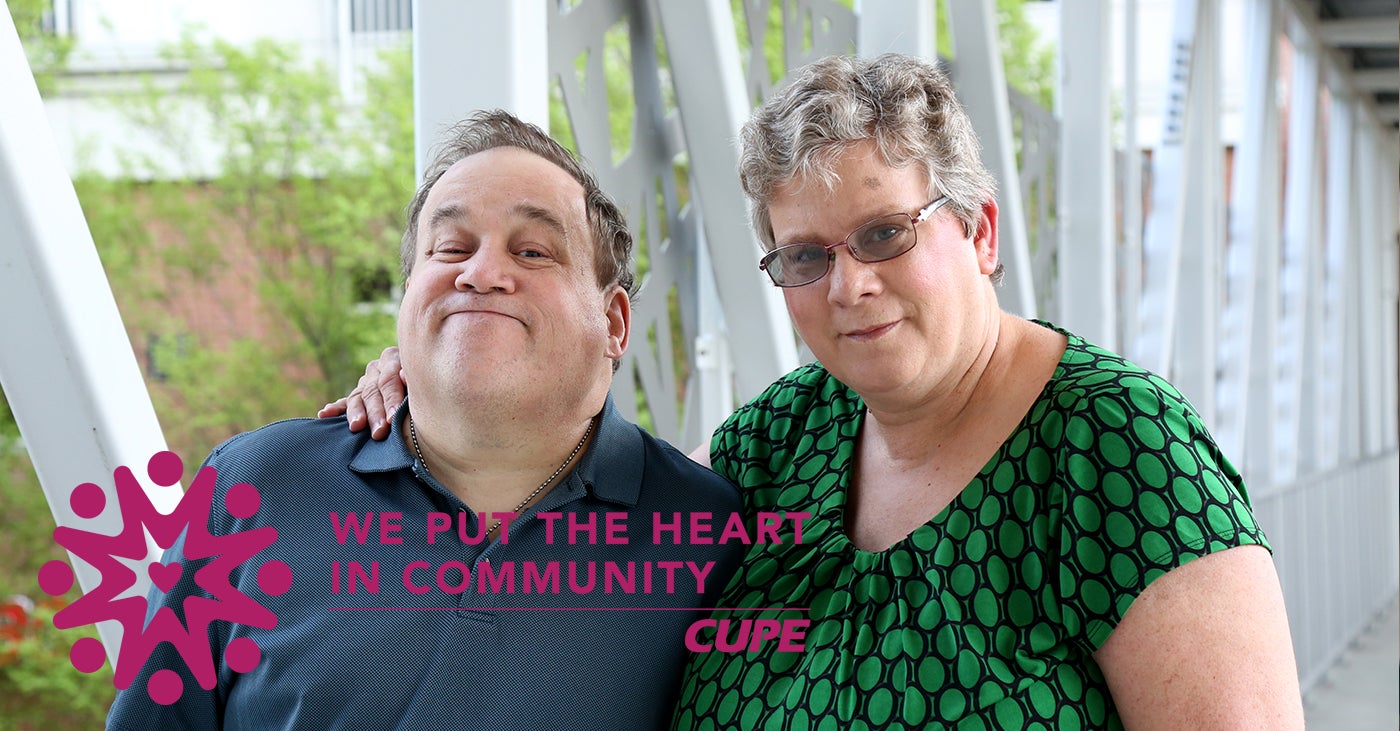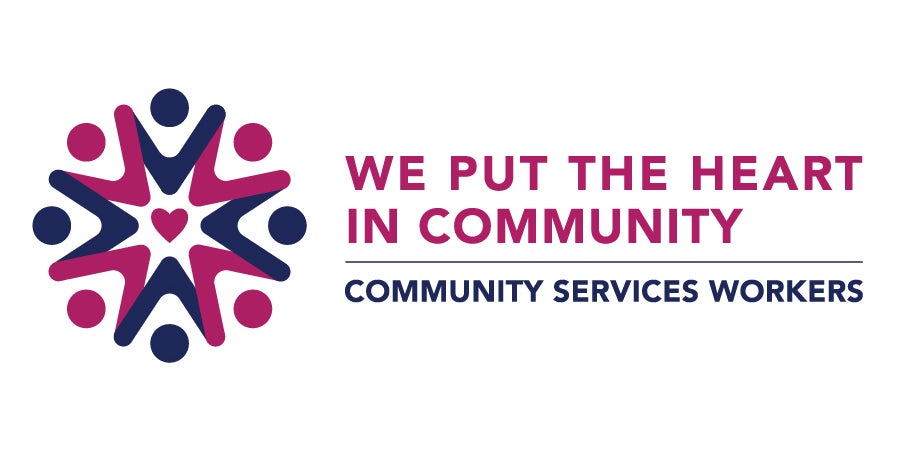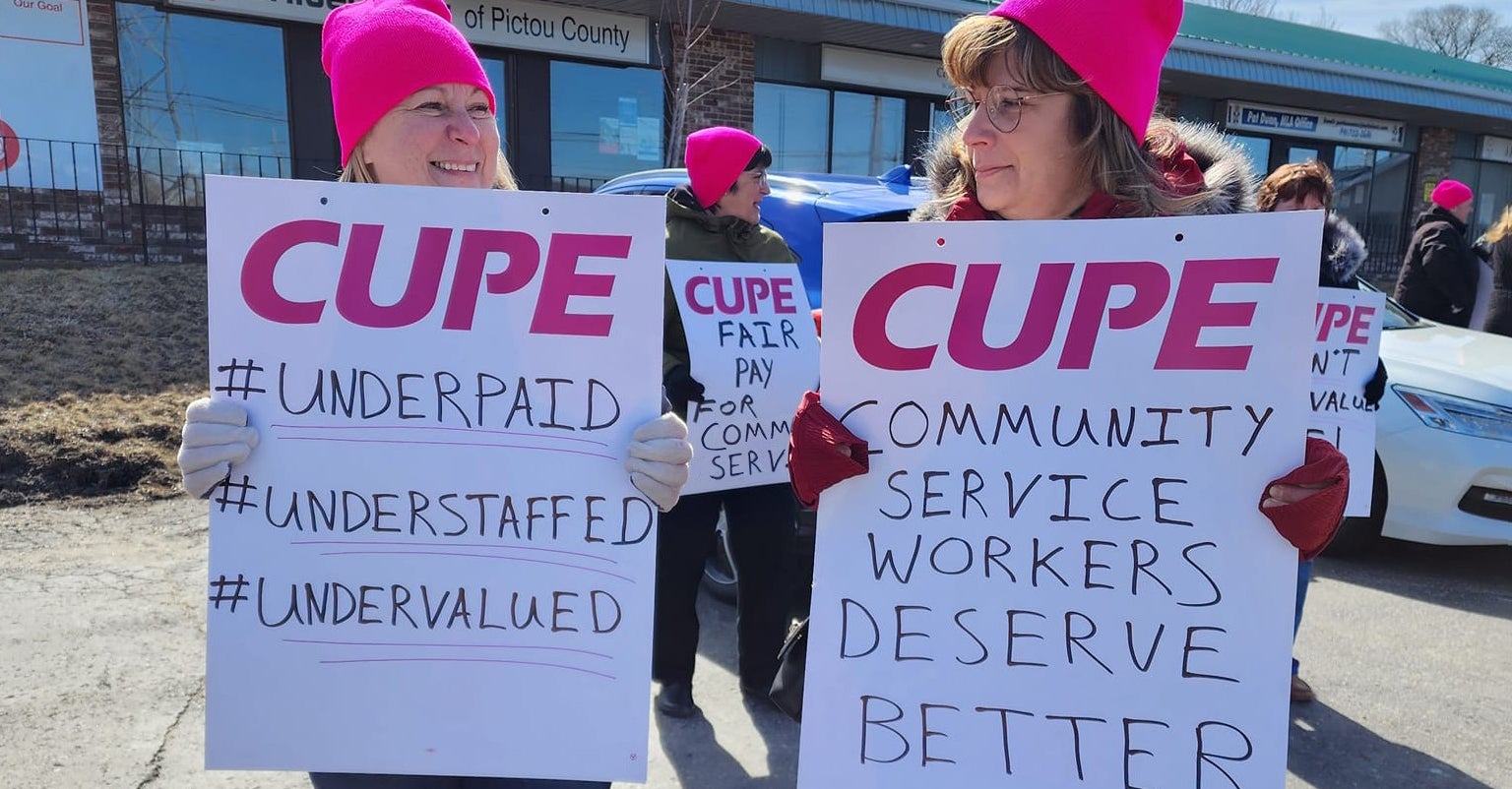As we were able to share with many members in two Zoom sessions this past Wednesday, we are going back to the bargaining table this coming Monday, March 4th.
We know it’s been an unbelievably long road, and we want to encourage members to stay strong, now more than ever. This is the first time that members in this sector have come together in a coordinated bargaining effort. When you’ve been pushed aside and ignored for so long, it can be hard to think about how important these moments are—not just for members, but for the entire sector, workers and clients alike. This is a historic round of bargaining, and employers know it.
Two weeks ago, the employer made a so-called “final” offer, after three years of prolonged negotiations. This offer directly targeted our coordinated bargaining effort across the sector by introducing concessions that would only apply to some members, as well as backtracking on previously agreed issues. These are typical tactics used to discourage members, drain our momentum and drag bargaining out even further.
They’re trying to push members in community services to their limit. But we pushed back. The Long-Term Care and Community Services Coordinating Committee has made it clear to the provincial government that we will only accept a fair deal for our members.
They wanted us to get tired. They wanted us to give up. They wanted you to get tired. They wanted you to give up.
But we did not give up. And you did not give up. And now the employer is ready to come back to the table, and we are ready to fight for a fair deal.
Since we launched our letter-writing campaign at DCSworkersdeservebetter.ca, almost 7,000 emails have been sent to our elected representatives in Nova Scotia. In the past two weeks, our campaign has reached 60,000 people across the province.
For every negative comment you see on social media, there are community members who see your contribution to Nova Scotia. For every day you’ve been waiting for a deal, there are thousands who are hearing our message that community services workers deserve better.
We encourage all members who have received their Department of Community Services sweaters to wear them to work on Monday. If you don’t have one, we ask that you wear all black and inform your coworkers to do the same.
As we mentioned in our last update, we want to keep you involved. If we don’t reach a fair deal on Monday, we have materials ready for members to make their voices heard.
You’ll hear from us after Monday’s bargaining meeting, and if the employer is not willing to make a fair deal to our members, get ready to bring the frustration you’ve been feeling to the phone.
Next Friday is Call-Your-MLA day for community services, and we will provide a phone script and information on how members and supporters can identify and contact their MLA.
Above all else, we hope you will remember this: You deserve better!
